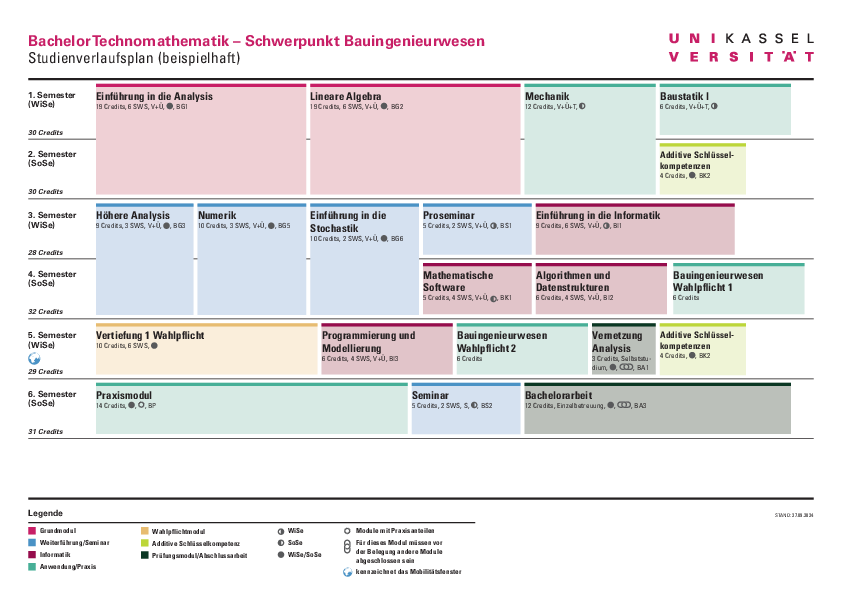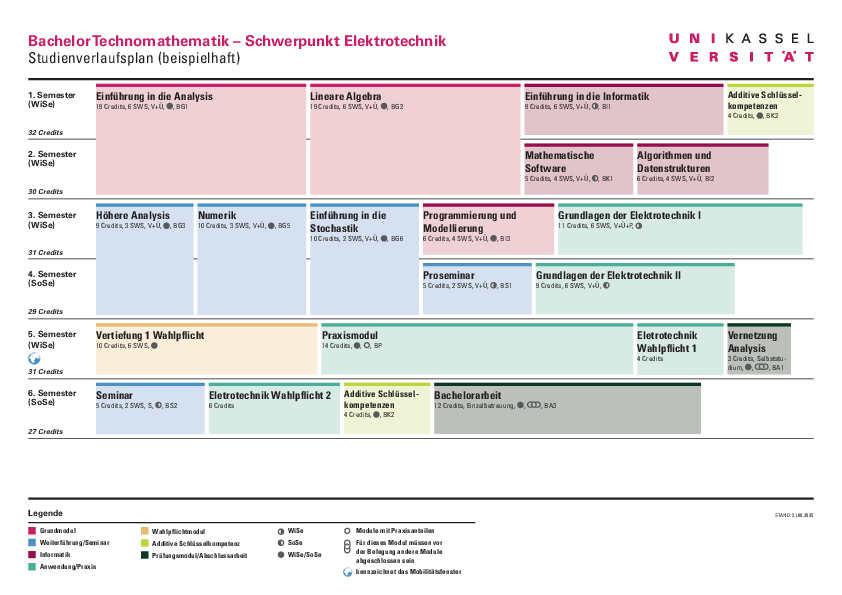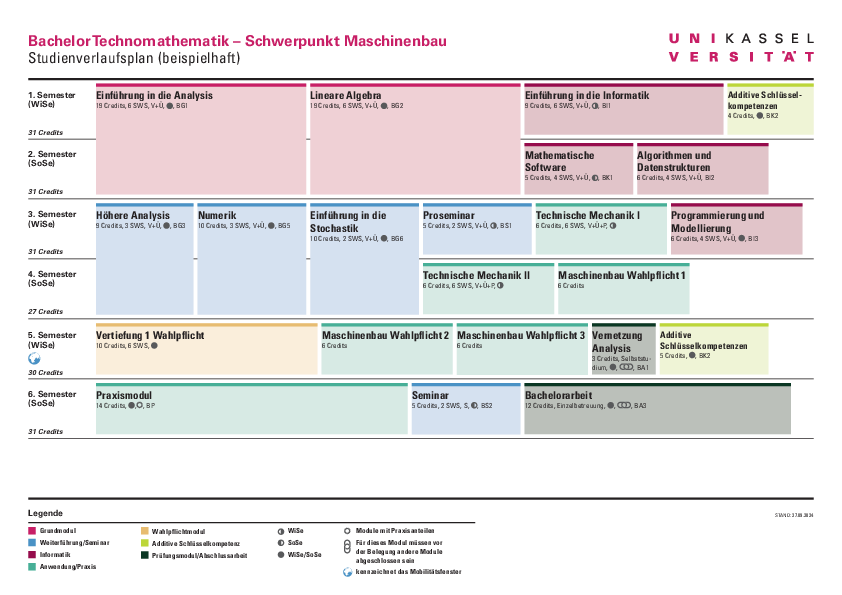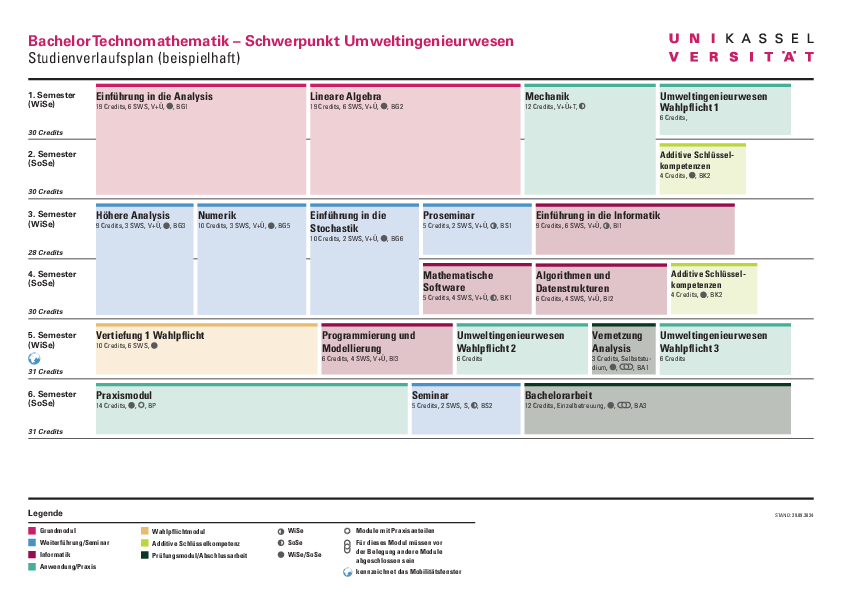How is the course structured?
This page contains automatically translated content.
Students on the Technomathematics Bachelor's degree course usually graduate after six semesters. As this is an interdisciplinary degree program, they take courses from the three pillars of Mathematics, Computer Science and an engineering science as an application focus. The first four semesters form the foundation area. In Mathematics, students acquire basic knowledge in the areas of analysis, numerics and stochastics. They also attend introductory courses in the chosen engineering science. To round things off, there is an introduction to Mathematics, which teaches basic programming skills and introduces students to mathematical software. Most of these courses take the form of lectures with accompanying exercises in small groups. There are also seminars and some practicals.
The last two semesters form the specialization area, in which students make a selection from a pool of specialized courses according to their personal interests. In Mathematics, the specialization areas of Analysis, Numerics, Optimization and Stochastics are offered here. In the application specialization, the courses offered depend on the chosen engineering science. In addition to lectures with exercises and seminars, a ten-week work placement must also be completed in this area, in which students gain an initial insight into the use of Technomathematics in practice. The final stage is a nine-week Bachelor's thesis, in which students work intensively on a specific Technomathematics topic. In the specialization area, there is also the opportunity to spend a semester abroad.
Study plan
Study plans according to application focus
Download
- Bachelor Technomathematics - Application focus Civil Engineering - PDF 105,58 KB (opens in a new window)
- Bachelor Technomathematics - application focus electrical engineering - PDF 103,27 KB (opens in a new window)
- Bachelor Technomathematics - application focus Mechanical Engineering - PDF 105,57 KB (opens in a new window)
- Bachelor Technomathematics - Application Focus Environmental Engineering - PDF 105,33 KB (opens in a new window)





